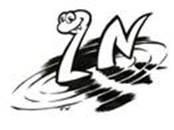Frequently Asked Questions – FAQ
- What ages of youth are the treatments designed to serve?
- What is the research background for the treatment programs?
- Is there a way to receive training in the application of the treatments?
- Can I make multiple copies of the treatment manual (or other materials)?
- How many of each do I need?
1. What ages of youth are the treatments designed to serve?
The answer to this question varies according to the treatment program. For example, the Coping Power program for aggressive children is designed primarily for the early elementary school years (e.g., especially for 4th to 6th graders), whereas the Keeping Your Cool anger management program is more for late childhood and early adolescent youth .
An important part of the answer to the question of the appropriate age of the children for the materials is the realization that age is only a proxy for changes in development, which include physical, social, emotional, cognitive, and behavioral aspects. An important task for the therapist who works with youth is to make adjustments, according to these developmental differences, to any of the treatment materials. The therapist must also "breathe life" into the materials and not simply go through them in a lock-step rigid fashion when working with youth. In other words, the intervention strategies and techniques need to be skillfully adapted to the specific needs and characteristics of the adolescent.
2. What is the research background for the treatment programs?
The developers of the various treatment programs are strong adherents of the notion that treatments should be subject to careful and rigorous evaluation and found to be of some benefit to participants. To varying degrees, such evaluations have been an integral part of the treatment programs. For example, the Coping Power program for aggression has been included in several independent books and reviews of the research literature and deemed “probably efficacious” in each case. This label indicates that multiple studies, by different research teams, have used the procedures and reported them to be effective. These published works are available to interested readers.
The developers of the Keeping Your Cool anger management program have conducted and reported research on the measurement of anger in youth and have been active providers of treatment to youth with anger control problems. The program is research-based in the sense that its components and strategies that are derived from the research literature that identifies specific areas that need to be addressed when working with angry youth (e.g., misattribution of the intentions of others, coping skill deficits, etc).
In all cases, reprints are available by contacting the individual authors.
3. Is there a way to receive training in the application of the treatments?
Workshops, provided by the developers of the programs, are available and you may want to check with the authors directly to determine their speaking schedules or contact LochNels Productions for further information. For the aggression and anger management programs, the answer is “Yes”, training is available.
4. Can I make multiple copies of the treatment manual (or other materials)?
NO. Given that the materials are fully copyrighted, and available from the publisher, we cannot grant individuals the right to make copies. In fact, making such copies is specifically against the copyright law.
However, for those conducting dissertation research, please contact us and special consideration may be given regarding the costs.
5. How many of each do I need?
For the Keeping Your Cool Workbooks, typically, each therapist would need a copy of the Therapist’s Treatment Manual (to follow and in which to make notes). Each participant youth needs a copy of the workbook. They get to put their name in the book, do assignments in it, and keep it for later reference; thus, the workbook is theirs to keep.
The Coping Power program is designed for the therapist to have a manual outlining the goals and objectives of each sessio, as well as the actual intervention strategies. Children do not need individual workbooks.
Some of the strategies described in the manuals and used in sessions are similar across the programs. However, the programs are highly focused on the identified target problem and population. If your focus is on anger in youth, then the Coping Power for younger youth and the Keeping Your Cool program for older children and adolescents would be most appropriate. If you work with different youth with different problems, then more than one program would be the proper approach. The workbooks and programs are focused and targeted for specific populations and, as such, are not recommended for application across multiple problem areas (e.g., where a youth manifests both aggressive behavior and depression).
- Workbooks
- Coping Power Program
- Keeping Your Cool: Part 1
- Keeping Your Cool: Part 2
- Therapist's Manual for Keeping Your Cool
- Videos
- Keeping Your Cool: The Anger Management Video
- ACTION: A School-Based Group Treatment for Depressed Children
- Coping Cat Therapist: Session by Session Guide
- Managing Anxiety in Youth
- Tests
- FAQ
- Latest News
- Order
- Contact LochNels
- Workbook Publishing
- Oxford Press
- Western Psychological Services
